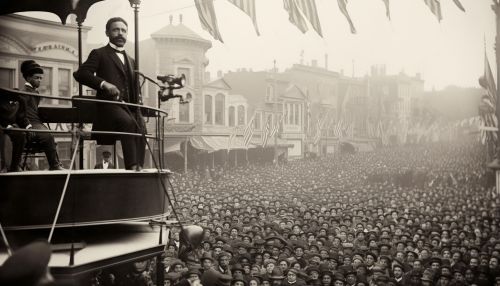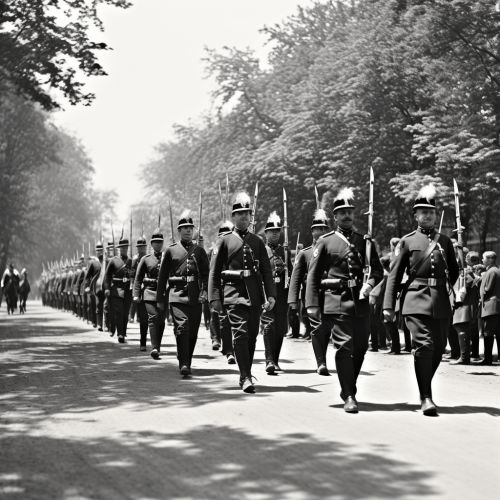Hitler
Early Life
Adolf Hitler was born on 20 April 1889 in Braunau am Inn, a town in Austria-Hungary (in present-day Austria), close to the border with the German Empire. He was the fourth of six children born to Alois Hitler and his third wife, Klara Pölzl.


Political Ideology
Hitler's political views were formed during his years in Vienna, which he later described as the most formative period of his life. There, he was influenced by a variety of ideologies, including Pan-Germanism, anti-Semitism, and anti-Marxism. He was particularly influenced by the writings of the philosopher Friedrich Nietzsche, the composer Richard Wagner, and the racial theorist Houston Stewart Chamberlain.
Rise to Power
Hitler's rise to power began in Germany in September 1919 when Hitler joined the political party then known as the German Workers' Party. The party espoused a right-wing ideology, like many similar groups of demobilized soldiers. Hitler soon gained notoriety for his vitriolic speeches against the Treaty of Versailles, rival politicians, Marxists, and Jews.


The Third Reich
Hitler's rule, known as the Third Reich, began with the Enabling Act of 23 March 1933, which gave him dictatorial powers. His aim was to establish a New Order of absolute Nazi German hegemony in continental Europe. His foreign and domestic policy aimed to achieve the seizure of living space (Lebensraum) for the Germanic peoples.
World War II
Hitler's aggressive foreign policy and expansionist ideology are often considered to be the causes of the outbreak of World War II. He directed large-scale rearmament and, on 1 September 1939, invaded Poland, resulting in Britain and France declaring war on Germany.


Death and Legacy
Hitler's actions and ideology are widely regarded as evil. Hitler's aggressive foreign policy and expansionist ideology are often considered the causes of the start of World War II, leading to the genocide of an estimated 6 million Jews during the Holocaust. His actions during the war resulted in an estimated 70-85 million deaths, approximately 3-4% of the world population at the time.


